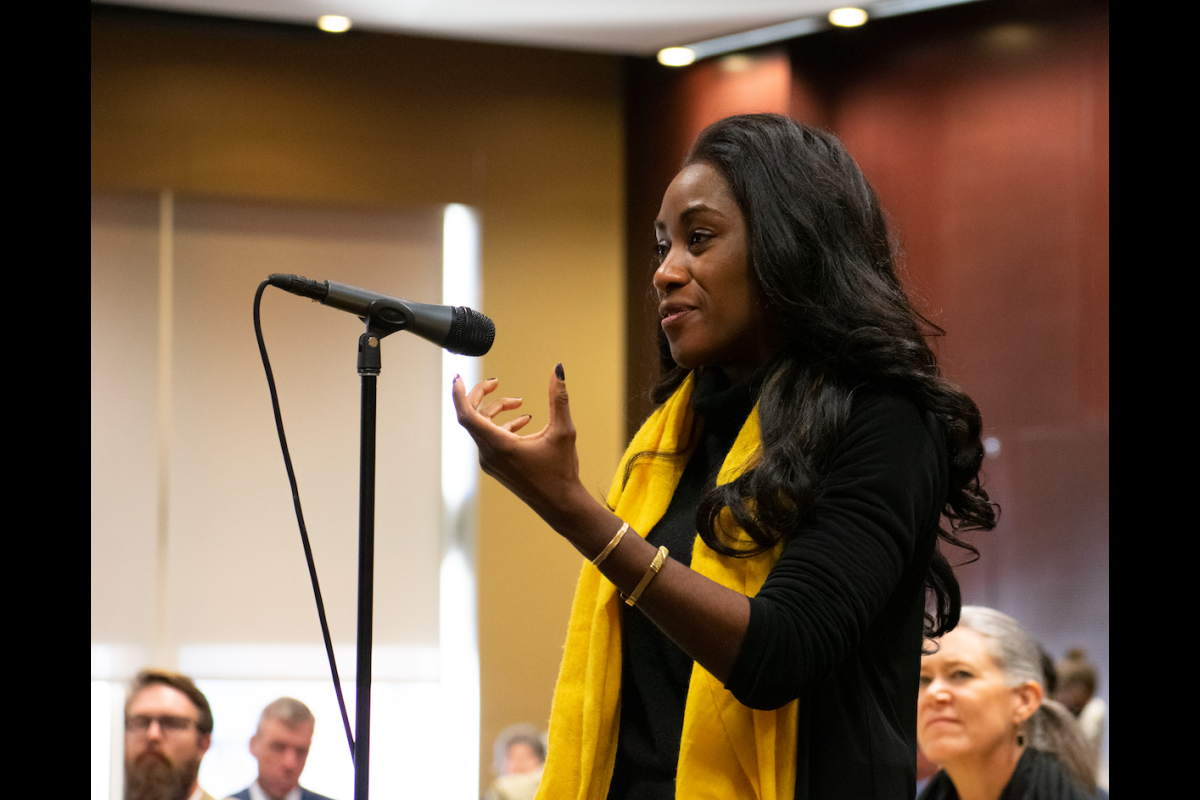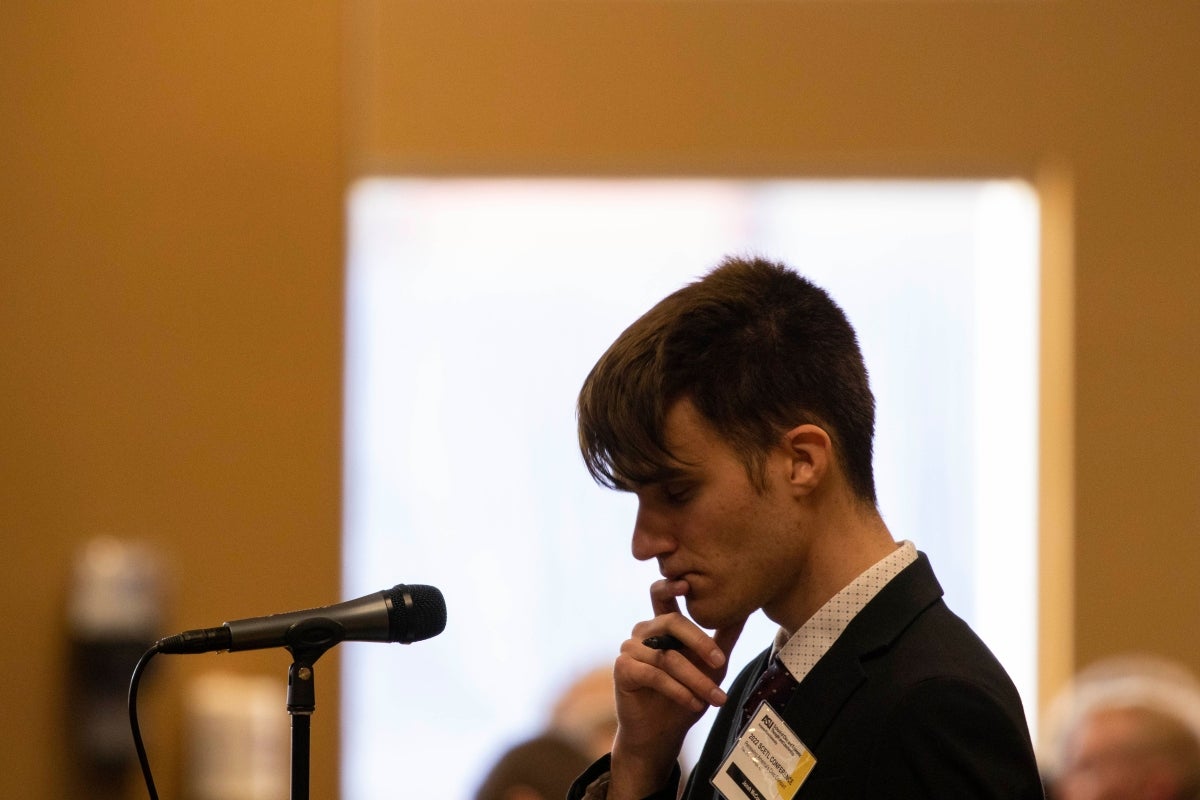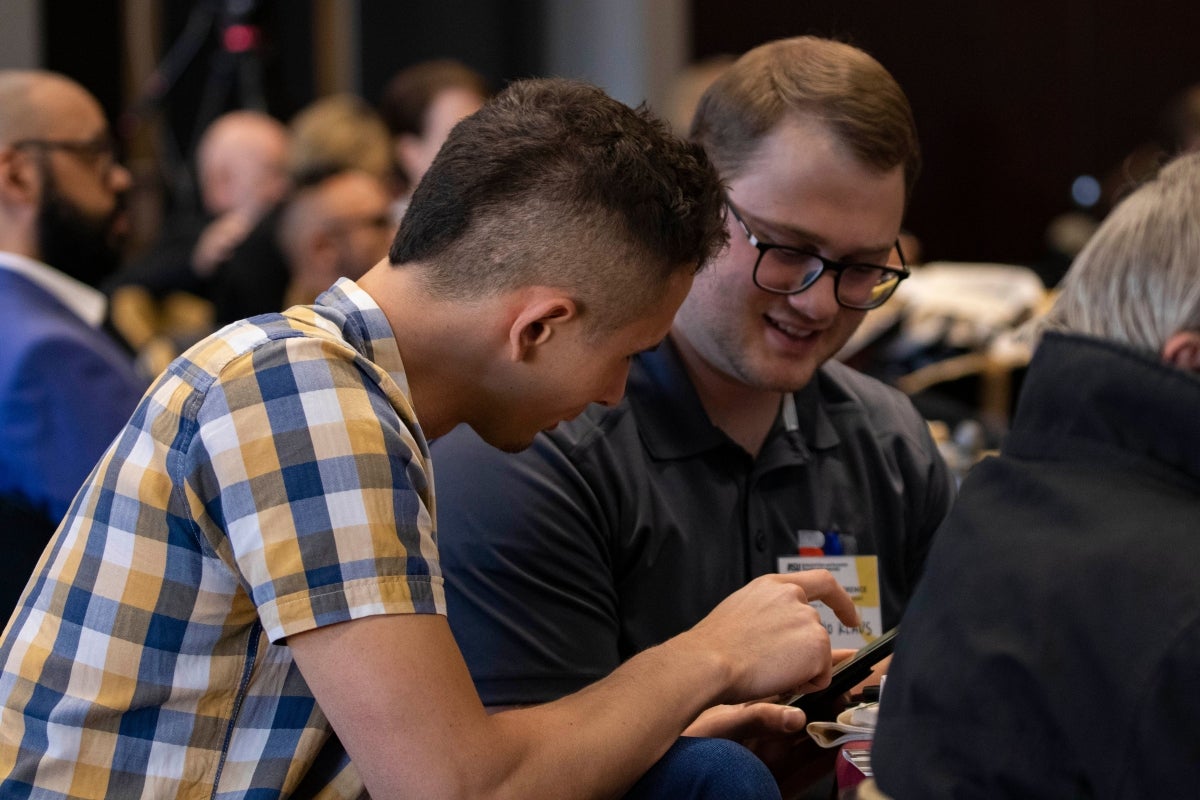The return to tribal identity and its impact on civic life in America
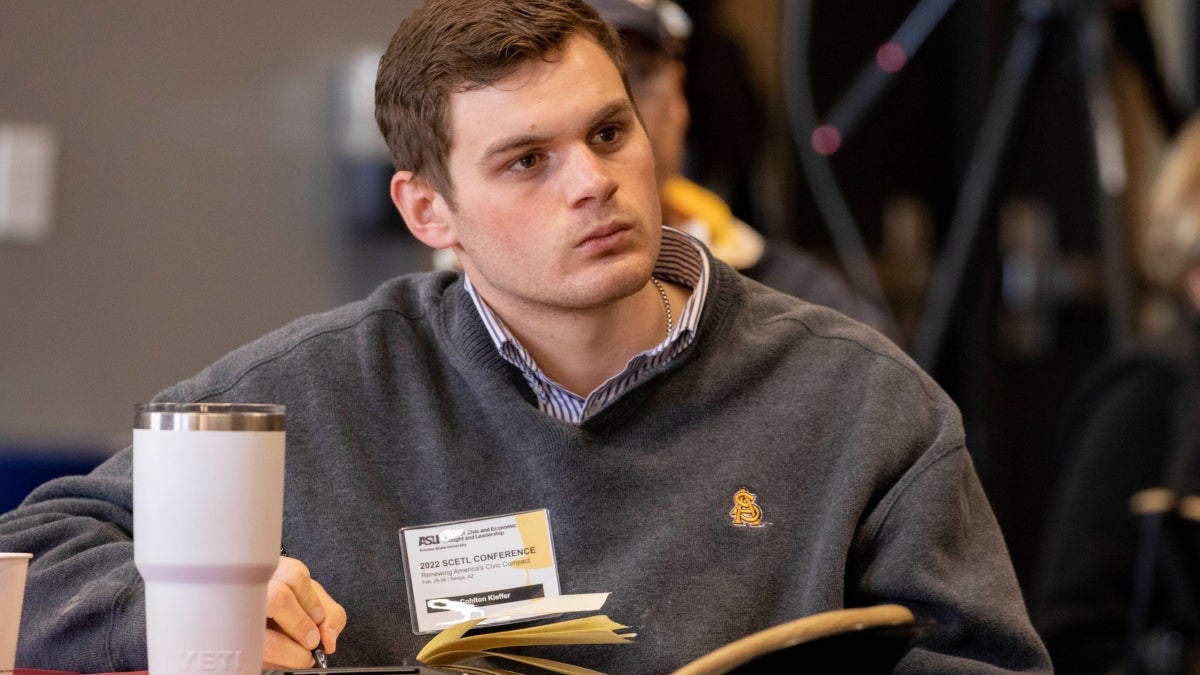
ASU student at the School of Civic and Economic Thought and Leadership spring conference. Photo by Blake Wilson
For the vast majority of their existence as a species, humans lived in tribes of roughly 150 people. Only in recent history was the concept of the individual born and elevated as something to be valued. Columnist, blogger at The Weekly Dish and author Andrew Sullivan argues, however, that there is a return to the state of tribal existence in America today.
Sullivan was the keynote speaker at a conference hosted by Arizona State University's School of Civic and Economic Thought and Leadership, titled “Renewing America’s Civic Compact,” on Feb. 25 and 26.
“Individualism as a goal is still essential, but when we create groups that are plainly visible by the color of your skin, by your sex, by your origin, there’s a deep double-down on the sense of group identity,” noted Sullivan in his lecture “We All Live on Campus Now.”
“The human being cannot be reduced simply to the group he identifies with. (This) can swamp our minds and destroy our sense of ourselves. The challenge is to rescue the individual from this intellectual climate,” added Sullivan, noting that “students stepping on a university campus for the first time today immediately wonder: To which group do I belong? And is this group a member of the historically oppressed or privileged class? We call this ‘intersectionality.’”
This tension between group dynamics and individualism was explored throughout the conference, which was attended by 149 guests, including undergraduate and graduate students, faculty and community members. At the end of the event, attendees got a chance to tour the school’s Civic Classics Collection, which includes rare books and first editions of "The Federalist," Martin Luther King Jr.’s "Stride Toward Freedom," George Washington’s "Farewell Address," Adam Smith’s “Wealth of Nations” and "The Gettysburg Address."
In addition to Sullivan’s analysis of college campus culture and its impact on the national consciousness, Kmele Foster, from Freethink and co-host of We The Fifth podcast, and Karen Attiah, columnist for The Washington Post, discussed the significance of individual dignity to achieve social progress. Foster's talk explored race, identity and the dignity of individuality. Other panels explored the role of meritocracy in American democracy, critiques of liberalism, how technology has contributed to the deterioration of our civic compact, and how civic friendship and education may rekindle our culture’s engagement in the democratic process.
The human being cannot be reduced simply to the group he identifies with. (This) can swamp our minds and destroy our sense of ourselves. The challenge is to rescue the individual from this intellectual climate.
— Andrew Sullivan, author, columnist and blogger at The Weekly Dish
Balancing historical study with present-day critique and forward-thinking solutions, the conference offered an assessment of American civic life.
“The 2022 SCETL conference is an annual opportunity to reflect upon the most pressing challenges to American civic life," noted Carol McNamara, associate director for public programs at SCETL. "Each year, we bring to ASU’s campus some of the country’s top public intellectuals and scholars to dialogue with our faculty, students and community. This year, we were guided by Abraham Lincoln’s words in the first inaugural address: How can Americans move together with a sense of purpose to rebuild the public and private institutions through which we sustain our civic, communal and professional lives?”
The conference was co-sponsored by the School of Civic and Economic Thought and Leadership and the Sandra Day O’Connor College of Law at ASU. It was supported by the Jack Miller Center, the Foundation Against Intolerance and Racism - FAIR and the Scaife Foundation. Conference lectures and panels are available on YouTube.
More Law, journalism and politics
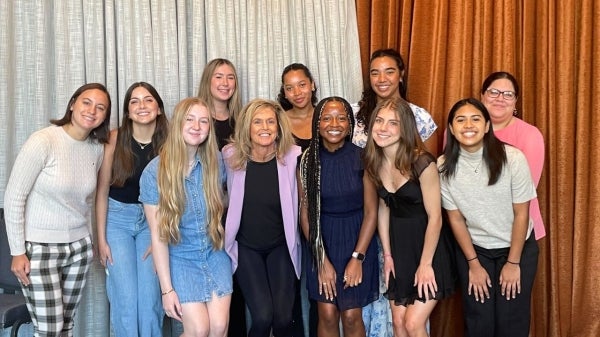
Cronkite School launches Women Leaders in Sports Media live-learn program
Women in a new sports media program at Arizona State University got a solid game plan from a sports veteran at an Aug. 20 welcome…

ASU center to host the Pursuits of Education and Excellence Symposium
The Center for the Study of Race and Democracy (CSRD) at Arizona State University is introducing the Pursuits of Education and…
ASU journalism students dominate NATAS Student Production Award nominations
Students at Arizona State University’s Walter Cronkite School of Journalism and Mass Communication dominated the nominations…
